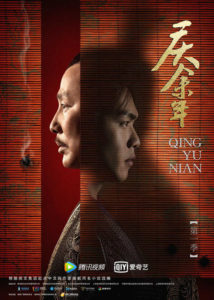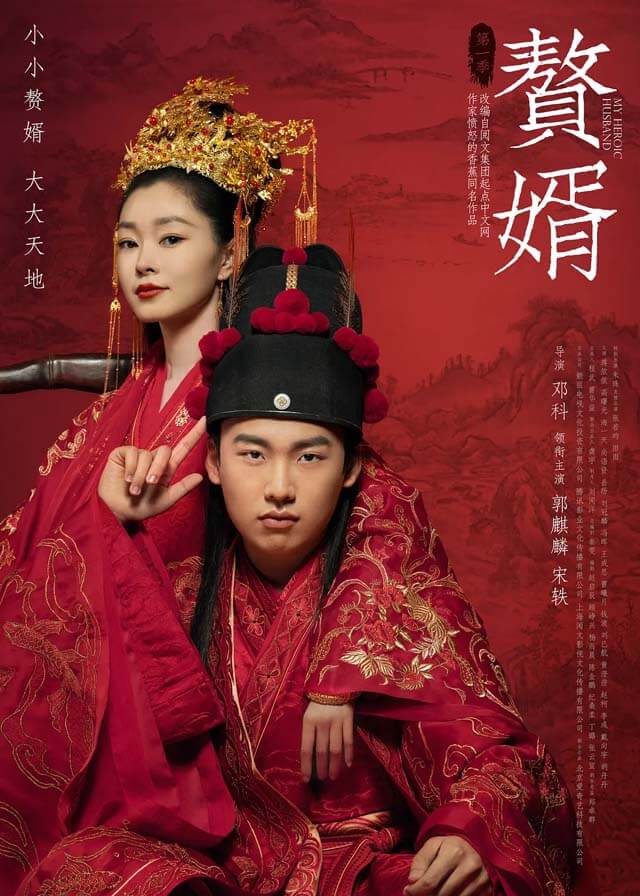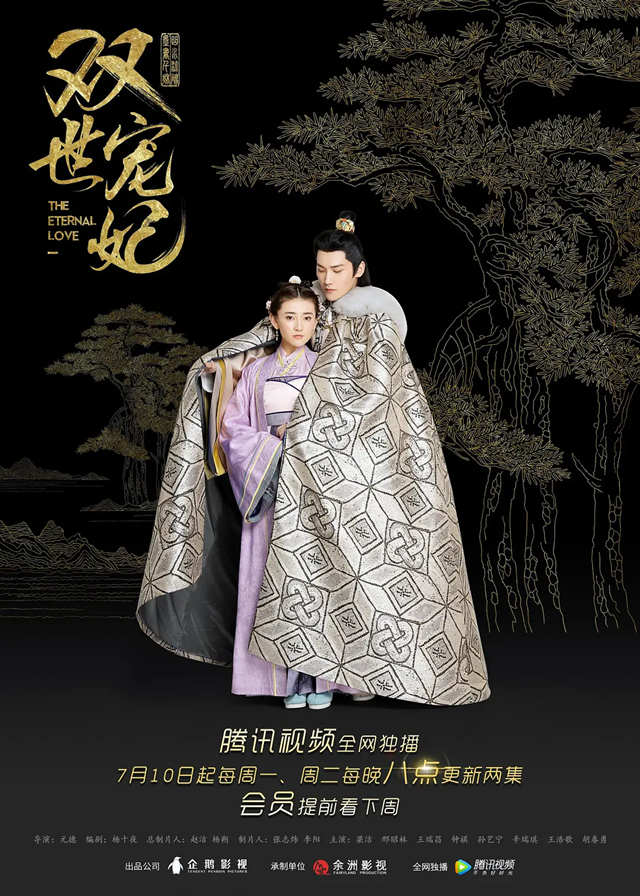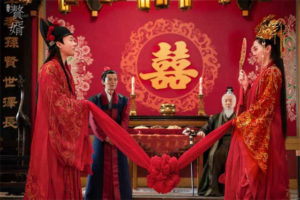My Heroic Husband Episode 36 (Ending) Recap
> My Heroic Husband Recap
Ning Yi, who also held the title of Commander in Chief of the Secret Investigation Department, first sought an audience with the Wu Emperor, whom he had previously convinced to journey to Jing State to stabilize his reign and avoid war. The Wu Emperor expressed his deep frustration with Qin Siyuan, feeling that the late Emperor’s will was being used to give him an ultimatum rather than counsel.
Ning Yi, having secured the Emperor's presence, then departed with Lu Hongti for the capital of Jing State, choosing a mountain shortcut to expedite their arrival. Meanwhile, Minister He and Right Chancellor Qin Siyuan arrived in the Jing capital. Lu Chengzhi, the Minister of Personnel, greeted Minister He but promptly sent Qin Siyuan to the Hall of Mental Cultivation, instructing his attendants to treat him well.
Minister He, eager to present the peace agreement, requested an immediate audience with the Jing Emperor. However, Lu Chengzhi put him off, citing Minister He's long journey and suggesting he rest, with an audience scheduled for the following day. Unbeknownst to Minister He, General Dong was leading the Wu army to the border of the Wu Dynasty and Jing State, rapidly approaching Xinggu Pass.
The next day, Minister He presented the peace agreement to Baili Hongji, the Jing Emperor, reiterating Wu's desire for peace and offering annual tributes of satin, silk, and silver. Baili Hongji, however, furiously accused Minister He of deception, revealing that Wu's 200,000 troops were already at Xinggu Pass. Minister He, stunned and claiming the war report must be false, desperately tried to assert his loyalty.
But Baili Hongji would not listen, ordering Minister He’s execution and his head to be displayed on the city tower at Xinggu Pass as a declaration of war. Moments later, as Baili Hongji was steeling himself for battle, news arrived that Ning Liheng, a peace envoy from Wu, sought an audience and carried another peace agreement. Baili Hongji, upon reviewing Ning Yi's peace treaty, changed his mind and summoned Ning Yi to the court.
Ning Yi, identifying himself as a mere cloth merchant from Jiangning, proposed a business deal to stop the war. He stated that if Jing State returned the six states of Qingyun, the Wu Dynasty would declare the region a permanent free trade zone, establishing independent judicial and monetary systems, and exempting taxes for ten years.
Ning Yi explained that this would balance Jing State's deficiencies in barren land and scarce minerals by allowing free trade of their much-needed horses and spices, ultimately strengthening Jing's military, enriching its granaries, and ensuring its people lived in peace without the need for constant conquest.
When Baili Hongji argued that Jing would soon conquer Wu anyway, making the offer moot, Ning Yi countered, reminding the Emperor that Jing State was still recuperating from its war with Liang and feared the resurgence of Liang remnants. He asserted that a peace treaty was Jing's best option, knowing Baili Hongji's reluctance to risk everything on a full-scale war. Baili Hongji, impressed by Ning Yi's reasoning, then questioned his authority, as Ning Yi held no official rank in Wu.
Ning Yi admitted he could not represent Wu, but then revealed the veiled figure behind him—the Wu Emperor himself. Ning Yi had previously convinced the Wu Emperor to make this journey, explaining that it would be an opportunity for the Emperor to prove his ability to lead and regain authority by peacefully recovering the six states of Qingyun, thereby earning the respect of his officials and citizens.
With the Wu Emperor's sincere presence, Baili Hongji agreed to Ning Yi's proposal, but with two significant conditions. First, he demanded that the Wu Emperor himself remain in Jing State as a captive for five years to ensure peace. The Wu Emperor offered his own son, the Crown Prince, as the hostage instead. Baili Hongji was impressed by the Wu Emperor's resolve. His second condition was that Qin Siyuan must be executed.
Ning Yi pleaded for Qin Siyuan's life, citing his old age and impending retirement, offering to guarantee that Qin Siyuan would never return to court. However, Baili Hongji was unyielding, stating that Qin Siyuan’s death was necessary to appease the millions of Jing soldiers who harbored deep resentment towards him. He warned that if these conditions were not met, the conflict would resume on the battlefield.
Back in his chambers, the Wu Emperor praised Ning Yi's successful negotiation, promising him great rewards for recovering the six states of Qingyun. Ning Yi, however, only asked for Qin Siyuan's life to be spared. The Emperor regretfully stated that Baili Hongji's stance was too rigid and that for the sake of the Wu Dynasty and the return of the six states, he had no other choice.
He concluded that Qin Siyuan’s sacrifice might be the best outcome for him, much to Ning Yi's disappointment. Ning Yi, refusing to give up, left the Emperor's presence. Ning Yi then went to the Hall of Mental Cultivation to see Qin Siyuan, who was attempting to solve a difficult chess endgame he had pondered for five years. Ning Yi sat down and made a daring move.
Qin Siyuan remarked that Ning Yi always played risky but brilliant moves, capable of turning a losing game into victory by sacrificing a single piece. Ning Yi, acknowledging the danger, declared he would fight to the death for that piece, believing it still had a chance to survive. Qin Siyuan warned him that saving that one piece would lead to the loss of the entire game.
Ning Yi, however, defiantly stated he was a "stubborn man" who played "stubborn chess," and that he "must" win the game and save that piece, even if it meant mutual destruction. Qin Siyuan urged him to stop and consider the "big picture," but Ning Yi retorted that he would discard the big picture if he could not save this piece.
Qin Siyuan then explained his reasoning: he knew Ning Yi wanted to save him, but even if he returned to Wu, he would still face death for secretly giving the late Emperor's edict to General Dong, which had undermined the current Emperor’s authority. His death in Wu would cause unrest in the court and diminish the Emperor's prestige. However, if he were to die at the hands of Baili Hongji, it would serve both Emperors' interests and achieve lasting peace.
Qin Siyuan recognized himself as a "necessary sacrifice" in the grand strategy of two monarchs. He instructed Ning Yi to manage the Secret Investigation Department well, prioritize state affairs, and never abuse his power. He also asked Ning Yi to visit Shaoqian's grave for him every year during the Qingming Festival. With nothing more to say, Qin Siyuan told Ning Yi to take care of himself. Qin Siyuan was then led to the execution ground.
Baili Hongji himself, rather than using a conventional executioner, personally shot Qin Siyuan with an arrow. Following the execution, Baili Hongji ordered the Jing armies to withdraw. Meanwhile, General Dong, with his army at Xinggu Pass, was preparing to attack, ordering them to take the pass before sunset.
However, before they could engage, the sound of the Jing army’s withdrawal bell echoed, followed by reports from the north: a peace treaty had been signed between Wu and Jing, and Xinggu Pass and the six states of Qingyun had been returned to Wu control. General Dong then ordered his forces to return home, averting a full-scale war between the two nations.
One year later, the trade center in the six states of Qingyun was thriving, with commerce between Wu and Jing increasing significantly and tax revenues soaring. However, General Dong reported to the Wu Emperor about new issues: remnants of the Liang State were plundering Wu caravans and fleeing into Jing territory when pursued, counterfeit porcelain from Jing was flooding the market, and Western spies had been caught by the cavalry.
The Emperor recalled that Ning Yi, as Commander in Chief of the Secret Investigation Department, had overseen the trade supplement agreement six months prior and instructed General Dong to consult with him. Ning Yi, enjoying a relaxed life at home while his wife worked, was unperturbed by the report of troubles in Qingyun. He took wine and meat to visit Lu Hongti, asking her to go to Qingyun to handle the issues.
Ning Yi lamented that Qin Siyuan, the "old man," had "stopped handling things for more than a year." Just then, a familiar figure emerged from the building, revealing himself to be Qin Siyuan, who wryly retorted, "Who says I don't care about anything?" Ning Yi then explained to a surprised Lu Hongti how he had saved Qin Siyuan. After their chess game, Ning Yi had returned to Baili Hongji.
He argued that killing Qin Siyuan served no real purpose beyond appeasing Jing's soldiers and displaying imperial power. If Qin Siyuan were truly killed, his loyal followers and the Secret Investigation Department in Wu would retaliate, jeopardizing the hard-won peace. Ning Yi proposed that Baili Hongji publicly execute Qin Siyuan but secretly ensure his survival.
Ning Yi would then covertly return Qin Siyuan to Wu, where he would be presumed dead by the Wu Emperor, effectively preventing him from ever returning to official duties without committing treason. This "win-win" solution would satisfy all factions: Jing's military would be placated, the Wu court would believe Qin Siyuan was gone, and Qin Siyuan's loyalists would think he had merely retired.
Ning Yi had appealed to Baili Hongji's larger vision for Jing State’s long-term peace and prosperity, not just short-term gains. Qin Siyuan acknowledged Ning Yi's brilliant "double life, double benefit" strategy, akin to a chess position where both sides could survive but were unable to make a move without risking defeat, fostering peaceful coexistence and maximizing mutual benefits. He only hoped this fragile peace would last.
They both expressed concern for the Wu Crown Prince, who remained a hostage in Jing. In Jing State, the Crown Prince was seen playing with other Jing princes, who mocked him for not having a father and for trying to steal their own. Baili Hongji arrived, consoled the Crown Prince, gave him a new jade, and declared that his own father would not return, and from now on, Baili Hongji would be his new father.
The Crown Prince, sad but resigned, addressed him as "Father Emperor." After more than a year, the Jing State had indeed profited immensely from the trade in the six states of Qingyun, significantly increasing its national power. Baili Hongji then spoke with his Chancellor Gu, confirming that "that plan" could now be implemented. Chancellor Gu confidently stated that "in less than a year, the Wu Dynasty will be destroyed."
As Chancellor Gu turned around, his face was revealed to be Tang Mingyuan. At his computer, the writer, resembling Ning Yi himself, finished writing the first season. Immediately after, he began the second season, ominously titled "Ning Yi's end is near."













